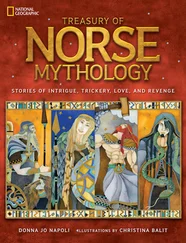Dorthe Nors - Karate Chop - Stories
Здесь есть возможность читать онлайн «Dorthe Nors - Karate Chop - Stories» весь текст электронной книги совершенно бесплатно (целиком полную версию без сокращений). В некоторых случаях можно слушать аудио, скачать через торрент в формате fb2 и присутствует краткое содержание. Год выпуска: 2014, ISBN: 2014, Издательство: Graywolf Press, Жанр: Современная проза, на английском языке. Описание произведения, (предисловие) а так же отзывы посетителей доступны на портале библиотеки ЛибКат.
- Название:Karate Chop: Stories
- Автор:
- Издательство:Graywolf Press
- Жанр:
- Год:2014
- ISBN:9781555970857
- Рейтинг книги:5 / 5. Голосов: 1
-
Избранное:Добавить в избранное
- Отзывы:
-
Ваша оценка:
- 100
- 1
- 2
- 3
- 4
- 5
Karate Chop: Stories: краткое содержание, описание и аннотация
Предлагаем к чтению аннотацию, описание, краткое содержание или предисловие (зависит от того, что написал сам автор книги «Karate Chop: Stories»). Если вы не нашли необходимую информацию о книге — напишите в комментариях, мы постараемся отыскать её.
A Public Space
Karate Chop
Karate Chop: Stories — читать онлайн бесплатно полную книгу (весь текст) целиком
Ниже представлен текст книги, разбитый по страницам. Система сохранения места последней прочитанной страницы, позволяет с удобством читать онлайн бесплатно книгу «Karate Chop: Stories», без необходимости каждый раз заново искать на чём Вы остановились. Поставьте закладку, и сможете в любой момент перейти на страницу, на которой закончили чтение.
Интервал:
Закладка:
But he is a Buddhist, and Buddhists have expanding souls. He drives around in the affluence of northern Copenhagen in the night and learns that it is the Buddhist inside him who is stronger. Inside him is an abundance of goodness. He can sense this is good, and he senses how meaningful it all is. The Universe is plotting coordinates for him. The Universe wants something from him. If the Universe hadn’t wanted something from him, then (a) his wife would never have left him, and (b) the Ministry of Foreign Affairs would never have pressured him into quitting. There is a meaning behind everything, and the Buddhist has had the feeling for a long time that he is the kind of person who is able to grasp the meaning behind things. He has also had the feeling for a long time that the world needs a strong, solitary man to save it. He is a Buddhist and a former government official in the Ministry of Foreign Affairs. Two birds with one stone. He is a Buddhist, a former government official, and used to lying. Three in one.
It is not long before the Buddhist sees an advertisement in a national newspaper and takes it to be yet another sign from the Universe. The aid organization People to People, based in the city of Århus, is looking for a president. Aha , thinks the Buddhist, who at this point is also a divorced, unemployed subtenant in an apartment in the South Harbor district of Copenhagen. Aha , he thinks, an organization is a good place to begin if you want to change the world.
There are two reasons why an organization is a good place to begin changing the world. First, an organization sells convictions rather than products. Second, selling convictions is all about ideals. The Buddhist has plenty of ideals. But that’s not all. Ideals attract young people and other idealists. The young people and the idealists are all going to work for the Buddhist and the Cause. He can pretty much decide for himself what the Cause is going to be, as long as it involves people and aid. Both things appeal to him. It would be good to have a world in which everyone was equally fat; not too fat, but happy. The Buddhist decides in his sublet apartment in the South Harbor that he wants to be president of the aid organization People to People. He also decides to call the volunteer workers World Ambassadors. The Buddhist wants to be their boss, or even better: he wants to be their leader.
To get the job he must lie. No, put that another way: to get the job he must put words into his own mouth. Which is allowed in a good cause, and he has lots of experience at it. He puts together a good, inaccurate letter of application. He has no problem omitting the fact that he is actually no longer married to the woman named as his wife. He has no problem either with his mail being redirected from the address in Charlottenlund. Removing various sticking points from his résumé is easy, and when it is done he sends the application. If he lies awake on his inflatable mattress on the floor in the South Harbor apartment, it is not because he has lied. He has accepted that the end justifies the means. If he lies awake it’s because he is tense thinking whether there is any way the organization’s board of directors can get around him. Which of course there isn’t. The chairman of the board is convinced as soon as he opens the envelope and sees the letterhead of the Ministry of Foreign Affairs. The board is in complete agreement, and calls the Buddhist right away. The board likes the sound of the Buddhist’s voice on the telephone. The board likes the way the Buddhist is “ready to drive to Århus immediately.” At the interview the board likes the way he drinks water from his glass. It likes the sound of his wedding ring when it chinks against the glass and taps against the desk. It likes his commitment to the problems of the world. It likes his dreams of a bigger, stronger People to People. The Buddhist is a visionary. The Buddhist is a family man. The Buddhist once held a diplomatic passport. The board has never seen the like. It is dazzled and ought to be wearing sunglasses. The Buddhist is more than convincing. There was, as the board would later state, “absolutely no getting around him.” Or, as the female member of the board told a reporter from the Århus daily: He wore leather elbow patches. We thought he was an intellectual. But she doesn’t say that until later.
We are now at the point at which the Buddhist becomes the leader of a movement, and it is at this point, just prior to his relocating, that he acquires his puppy dog. The puppy dog is a black Labrador and he calls it Sancho. Buddhists are kind to animals, and leadership is about incorporating soft values into work structures, and Sancho is soft. The Buddhist puts the dog on the floor of his Berlingo, and drives away from the South Harbor. The Buddhist is on his way to Århus with plans for his life and for the world. He has an inflatable mattress on the rear seat and ten pairs of clean underpants. He has plans for the world and the key to a provided residence in Århus. He is the new president of the aid organization People to People and he has been in the newspapers. He is driving toward a greater future than the one he envisaged before. He is driving toward the kind of future that women will appreciate. Who knows, he may even meet the foreign minister one day on a plantation in some developing country with himself as host for the whole thing. He smiles at the thought and stops the car only when Sancho needs to urinate. He himself is a Buddhist and urinates only when he wants to.
At a rest area west of Odense while the dog is urinating he happens to look at his car, the Berlingo. He thinks about how it is just the right car for him. From headlight to tailgate the Berlingo signals roominess. The design of this particular model with its sliding rear doors makes it easier to get in and out with schoolbags, groceries, and the desire to make a difference in the world. You couldn’t say the Berlingo was a sexy car, the Buddhist thinks. But that’s okay, because the Berlingo is meant to signal inner, rather than outer, values. The design is meant to indicate that the owner is practical, reliable, and flexible. The fact that the Berlingo is a safe car is hardly immaterial either. Around the cabin is a metal frame said to be so solid that nothing bad can ever get to anyone inside.
The Buddhist puts the dog on the floor of the car again and as he drives away from the rest area he realizes that the Berlingo is yet another sign from the Universe. He is driving the safest car on the market. He is driving a car in which no one can die. But even though dangerous things like death can’t get into the Berlingo from the outside, that doesn’t mean danger is not already inside the car. It strikes the Buddhist that if he were a force of evil in the world, then he would be afraid of himself. If I were evil, I would hate me , the Buddhist thinks. And if I were someone who wanted to do good in the world, what car would I choose? the Buddhist asks himself as he overtakes a Volvo with Swedish license plates. It’s a hypothetical question. The Buddhist has already chosen the Berlingo.
It appears a short moment after he overtakes the Volvo: the omen. The Buddhist receives an omen, and the omen manifests itself above the Lillebaelt Bridge, which he is approaching. In the sky over Fredericia, or perhaps even the whole region, he sees a great halo. The closer he gets to the Lillebaelt Bridge, the brighter the halo becomes. The moment the wheels of the Berlingo touch the Lillebaelt Bridge, the gray metal of the Lillebaelt Bridge is transformed into a shining Bifröst arching across the strait and stretching up into the sky. It is like a mirage and yet quite real. The Buddhist is driving on an astral body and he is heading in the direction of the heavens. Down in Denmark, far below him, people scurry out into their gardens and point up at him and the Berlingo. They point at the red Berlingo driving across the sky as though it were Halley’s Comet. The Buddhist feels the energy rushing into him from the Universe and lets himself be driven in great sweeping arcs through the clouds. He waves at Denmark below, and parts of northern Germany, and then eventually he arrives at a shining gateway. He does not inquire of himself whether he is supposed to drive through the gateway. He is the Chosen One. The whole meaning of the gateway is for him to drive through it, and so he does. He drives until the car stops all by itself, high above central Jutland. He takes the dog under his arm, opens the door, and steps out into the heavens. He can walk on the clouds. He cannot fall, and he senses a figure in orange garments, with a clean-shaven head and large spectacles coming toward him. There is no need to look closer; it is obviously the Lama. The Buddhist kneels and hopes that the dog will not urinate at this hallowed moment. He doesn’t dare to lift his head. He feels like a pixie and wants to tell the Lama so, but he doesn’t dare to look at him. He thinks that if pure goodness looks at pure goodness something might explode. Thank you , he says simply. Thank you for your goodness and wisdom , and the Lama lays his hand on his head and replies: Don’t mention it, my boy, and remember now, you need chaos in your soul to give birth to a dancing star.
Читать дальшеИнтервал:
Закладка:
Похожие книги на «Karate Chop: Stories»
Представляем Вашему вниманию похожие книги на «Karate Chop: Stories» списком для выбора. Мы отобрали схожую по названию и смыслу литературу в надежде предоставить читателям больше вариантов отыскать новые, интересные, ещё непрочитанные произведения.
Обсуждение, отзывы о книге «Karate Chop: Stories» и просто собственные мнения читателей. Оставьте ваши комментарии, напишите, что Вы думаете о произведении, его смысле или главных героях. Укажите что конкретно понравилось, а что нет, и почему Вы так считаете.












